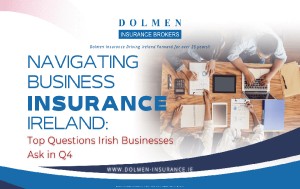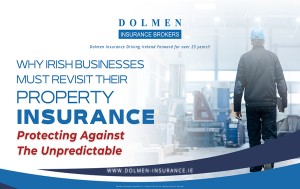
Irish businesses rely on fleets from small delivery vans to large trucks. Managing fleet insurance costs have become a more significant concern in recent times for both small and large businesses. A rising premium can squeeze margins. In fact, Ireland saw a 2% average rise in motor insurance premiums in 2023 and again in 2024, reaching €568 per policy according to figures from the Irish central bank. Meanwhile, damage claim costs surged 5%, to €178 per policy.
However, there were business who found significant ways to reduce their fleet insurance costs. Businesses using fleet management systems reduced insurance costs by 20% on average in 2024, highlighting that proactive steps can yield real savings. With that in mind, here some top tips compiled by our team to manage and reduce fleet insurance costs effectively.
How to Reduce Motor Fleet Insurance Costs
1. Use Telematics and Fleet Management Systems
Telematics tracks vehicle behaviour speed, braking, idle time. It also records location and mileage. According to AIG, Irish fleets using such systems have seen reduction in insurance costs by around 20% last year. Systems like GPS monitoring can reveal risky patterns before accidents occur. Moreover, insurers often reward data-driven safety efforts. Investing in telematics or a fleet management system, and sharing driver safety reports with your insurance provider, can help reduce premiums.
2. Implement Proactive Maintenance Programmes
Routine upkeep prevents breakdowns and avoids costly roadside call-outs. The AA reported that, Irish fleets saved 16% on maintenance costs by scheduling preventive and predictive checks in 2024. That feeds through to fewer claims and lower insurance premiums.
Accordingly, set up maintenance schedules based on mileage and hours. Inspect brakes, tires, lights, and safety systems regularly. Document all servicing to show insurers proactive risk management.
3. Increase Security and Control Access
The less likely a vehicle is stolen or vandalized, the lower the premium. Fit immobilisers, alarms, and GPS trackers in vans and trucks. Park vehicles in secure locations overnight. Key control systems and driver ID checks help too.
Some insurers offer premium discounts for such measures. So, enhance security systems and share proof when applying for quotes.
4. Train Drivers Continuously
Driver training boosts safety and cuts collision risk. Offer defensive driver courses regularly. Focus on fatigue, distraction, speed limits, and adverse weather. Trained drivers cause fewer accidents, and claims, thus reducing premiums.
Keep training records and accident-history logs. Present them to insurers as evidence of risk mitigation.
5. Choose Named Drivers Over Open Policies
If you assign vehicles to consistent drivers, consider named-driver coverage instead of “any‑driver” policies. Named-driver policies are often cheaper. They allow underwriters to assess a known risk profile. Especially for vehicles used only by company drivers, named-driver options offer value.
6. Raise Voluntary Excess
Voluntary excess means you absorb more of the minor claim cost. By choosing a higher excess, you reduce premium rates. Just ensure your fleet can cover the excess fund. Budget accordingly before selecting excess levels.
7. Review Claims History Regularly
Insurers base premiums partly on fleet claim history. Fewer claims mean lower premiums. So, analyse trends annually. If incidents rise, diagnose why. Address the root causes, whether training, maintenance, or scheduling. Then present improvements to insurers during renewal.
8. Bundle Fleet Insurance with Other Covers
Some insurers offer package policies that combine fleet, liability, and property cover. Bundling may unlock economies of scale. Additionally, insurers often provide better underwriting terms for larger portfolios. Ask for quotes including multiple lines to compare savings.
9. Use Broker Expertise
At Dolmen we are experts in Motor Fleet insurance. As a fleet insurance broker we can negotiate better terms across insurers. Brokers access market-wide pricing insights. They help align cover with actual risk. Some brokers charge a fee per commercial policy. That cost often pays for itself via premium reductions.
Tips for Managing Fleet Insurance
1. Use Data to Support Negotiations
As previously menetioned, collect telematics reports, training logs, and maintenance records. Present them to insurers as proof of ongoing risk reduction. You’re not just buying insurance, you’re actively managing risk. That confidence often results in better premium terms.
2. Engage in Risk-Sharing Programmes
Some insurers offer risk-sharing models. You carry a portion of small losses; insurer covers bigger events . These programmes reward fleets with strong safety efforts. Explore risk-sharing during renewal discussions.
3. Monitor Inflation Impact
Rising labour and parts costs drive claim values higher. The Irish time reported that in 2023, claim costs returned to pre‑Covid levels. It’s important to monitor how inflation shifts premiums, and renegotiate accordingly.
4. Opt into Advanced Warning Systems
Advanced driver-assistance systems (ADAS), dashcams, and telematics devices provide real-time warnings. Hybrid speed control, lane departure alerts, and collision recognition reduce accidents. As a result, insurers recognise the value and offer discounts.
5. Leverage Regulatory Requirements
Irish HGVs and commercial vehicles must meet NCT and motor tax standards. Ensure all vehicles stay compliant. Compliance reduces roadside failure risk and reassures insurers. Passing regular inspections supports lower premiums.
6. Negotiate Terms Actively
Treat renewals as negotiation events. Use safety data, claims history, and competitor quotes. Ask insurers to match or beat the best offer. Brokers often help submit comparative quotes and secure competitive interest.
7. Set Up a Dedicated Fleet Safety Plan
Draft written policies covering speed limits, fatigue management, mobile phone use, and vehicle checks. Make policies visible in vehicles. An official plan signals serious risk control to underwriters.
8. Perform Annual Reviews
Each year, audit fleet size, usage, routes, and operations. Vehicle usage may decline or increase. New routes, drivers, or vehicles change your risk profile. Booking these changes promptly ensures accurate premiums.
Benefits of Cost-Effective Fleet Insurance
Cashflow Protection
Insurance shields you from potentially crippling claims and large repair bills. Without cover, a serious collision or theft could devastate finances. Cost-effective insurance ensures protection without excessive premiums.
Business Continuity
A damaged fleet disrupts delivery schedules and operations. Insurance, including business interruption or replacement vehicle cover, helps maintain service levels. A disrupted supply chain can harm reputation and profitability.
Legal Compliance and Tender Eligibility
Adequate insurance is required by Irish law for commercial vehicles. Public-sector contracts and subcontracts often demand fleet insurance proof. Meeting these requirements improves tender chances.
Enhanced Risk Culture
Telementrics and training improve driver behaviour over time. Drivers who feel supported by safety investments often perform better. That productivity gain also benefits your bottom line.
Competitive Edge
Businesses with safety-focused fleet policies and proven low risk often secure better contracts and routes. Suppliers may negotiate better terms when insured fleets demonstrate reliability.
Environmental and CSR Benefits
Reduced accidents and better driving habits cut fuel use and emissions. Eco-conscious operations may fetch environmental grants or attract sustainability-focused clients.
Common Mistakes to Avoid
1. Ignoring Telematics ROI
Some fleet managers dismiss telematics as intrusive or expensive. However, Irish evidence shows they cut fleet insurance costs by 20% and maintenance costs by 16% Take the plunge and track savings.
2. Relying on Single Insurer Quotes
Shopping just one insurer may save time, but miss better deals. In private motor insurance, quotes vary significantly. The same holds true for fleets. Multiple quotes deliver perspective.
3. Overlooking Policy Inclusions
Not all fleet policies include business interruption, legal defence, or replacement vehicle cover. Avoid cheap cover that may leave gaps at claim time. Review policy schedules carefully.
4. Skirting Maintenance Standards
Failing to maintain vehicles increases breakdowns and claim likelihood. It may also void insurance cover. Regular servicing isn’t optional, it’s essential.
5. Failing to Document Incidents
Even minor scrapes need logging. If not reported promptly, insurers may reject later claims or charge higher premiums. Document each incident with date, location, vehicle, and driver.
6. Skipping Driver Vetting
Allowing inexperienced or risky drivers behind the wheel increases genuine claim risk. Vet drivers properly, check licences, and ensure any named-driver policy accurately reflects usage.
7. Underinsuring Vehicles
Opting for inadequate cover or low limits can be a false economy. Vehicles may require full replacement. Claims above policy limits fall on your business.
8. Ignoring Inflation Trends
Rising inflation raises repair and replacement costs. Insurance premiums respond. If you ignore inflation, you’ll pay more later, or face under-cover when claims arise.
9. Overlooking Excess Funds
Voluntary excess saves on premiums. Yet in a rush to cut cost, businesses may choose excess levels beyond their ability to pay. Budget realistically before changing excess.
10. Delaying Renewal Decisions
Start renewing at least six weeks before policy expiry. Early preparation allows data collection, negotiation time, and quotes comparison. Late renewals reduce leverage and increase renewal risk.
So what should you do next?
Managing fleet insurance in Ireland demands strategy, data, and negotiation. We’ve mentioned it numerus times above but, Telematics, maintenance, driver training, and proactive broker engagement deliver real premium savings. Fleet insurance often forms 10–15% of total ownership cost, but it need not eat into profits. With well-tuned risk management and expert support, you can secure comprehensive cover at competitive prices.
At Dolmen Insurance, our team specialises in fleet insurance for Irish businesses. We assess your risk profile, recommend tailored policies, negotiate rates, and monitor renewal trends. Get in touch to discover savings, maintain compliance, and protect your fleet and business reputation.
If you are looking for affordable, comprehensive insurance cover, consider Dolmen Insurance. Get in touch today to discuss all your insurance options and explore the benefits of working with Dolmen Insurance.
Whether it's Commercial Insurance, Mortgage Protection to Life Insurance , home insurance or car insurance we have you covered.
Contact Us Today.
Note: The information provided in this article is for general guidance purposes only and does not constitute professional advice. For personalised insurance recommendations, please consult with our qualified insurance advisor.





